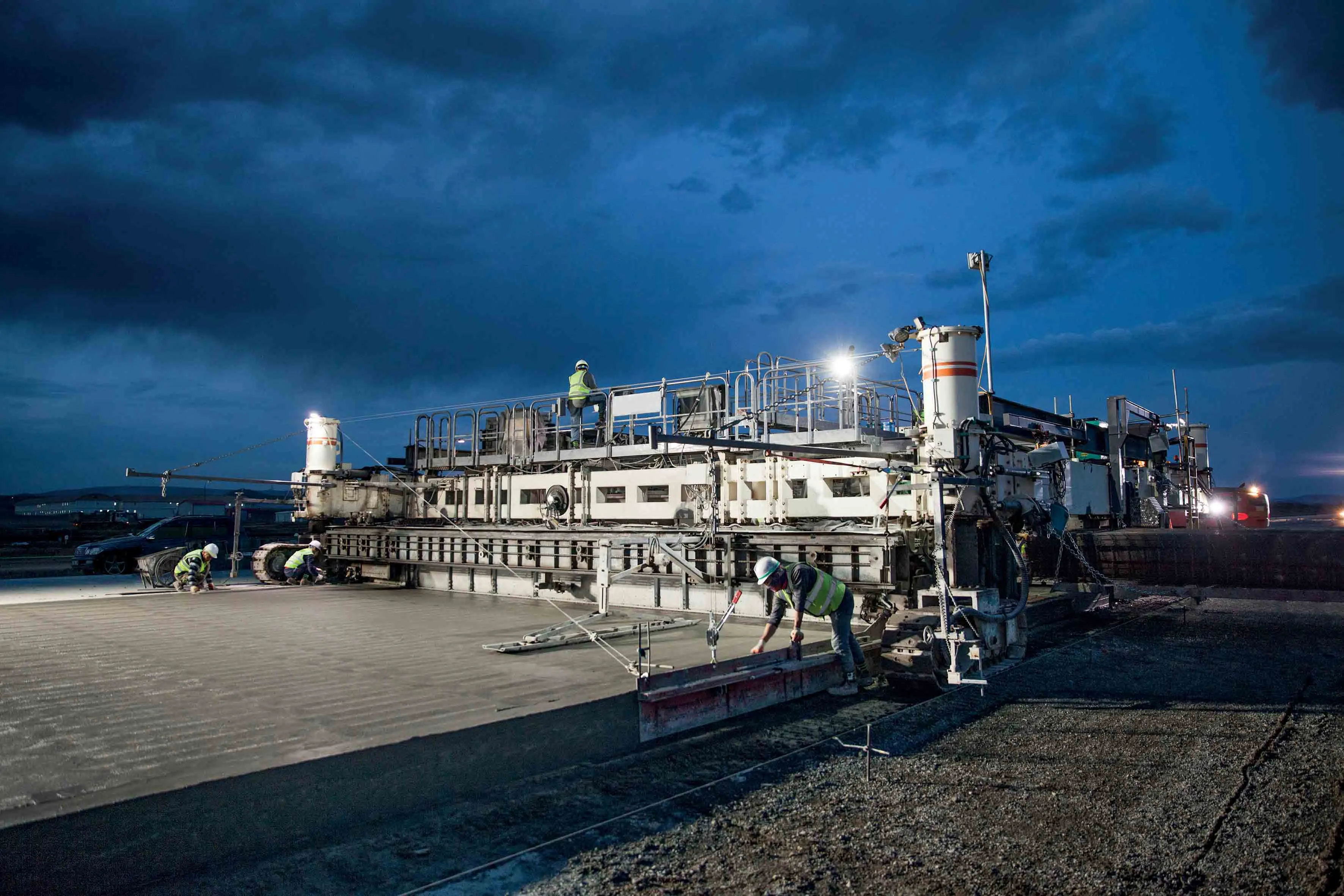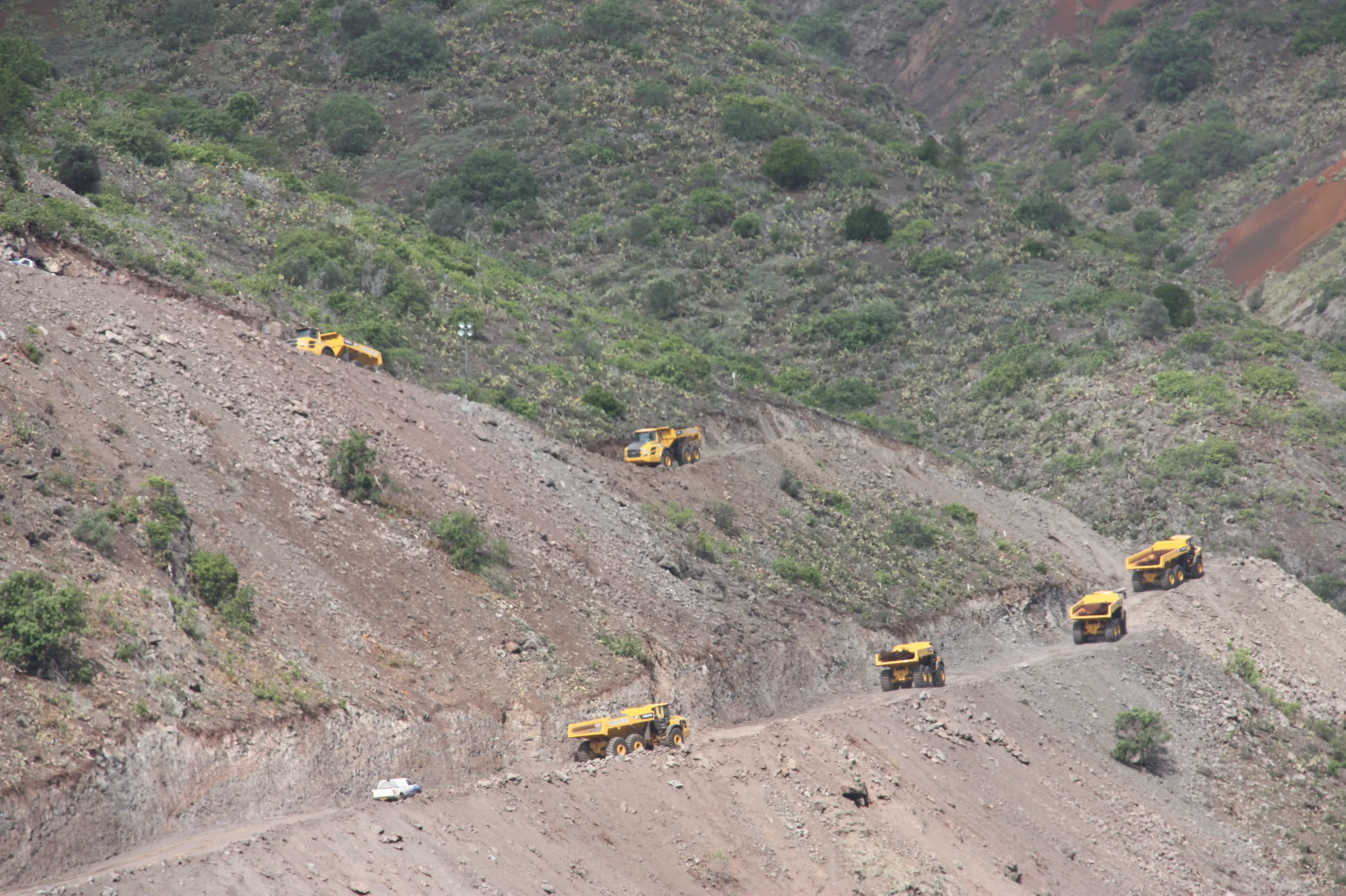Five consortia are vying for the contract to pave 255km of Paraguay’s bi-oceanic corridor project - the Loma Plata-Carmelo Peralta road paving works.
The five consortia are INECS, EPI, ACI Proyectos Cialpa, Geocon-MCSA and Loma Plata.
The 255km contract is the first phase, costing US$300 million, of a 1,045km overall corrider that will need around $926 million.
Tenders for the first phase were launched in November covering the section between Carmelo Peralta, Cruce Centinela and Loma Plata in the w
March 14, 2016
Read time: 2 mins
Five consortia are vying for the contract to pave 255km of Paraguay’s bi-oceanic corridor project - the Loma Plata-Carmelo Peralta road paving works.
The five consortia are INECS, EPI, ACI Proyectos Cialpa, Geocon-MCSA and Loma Plata.
The 255km contract is the first phase, costing US$300 million, of a 1,045km overall corrider that will need around $926 million.
Tenders for the first phase were launched in November covering the section between Carmelo Peralta, Cruce Centinela and Loma Plata in the western region of the country under a turnkey format. The tender winner for the first phase must finance the construction and be repaid upon completion. But funds may also be sought from international investors for the second phase if the tender winner cannot self-finance the work.
World Highways reported in November that the second stage of the project that will connect Paraguay with Argentina and cost $340 million. Work include paving the Cruce Centinela-Mariscal Estigarribia-Pozo Hondo road section.
The tender for the development of the final engineering design of the second section will be launched in 2016.
The third phase of the initiative is construction of the bridge over the Paraguay River between the cities of Carmelo Peralta in Paraguay and Puerto Murtinho in Brazil. Details of the project are outlined in the Cosiplan project portfolio from the Union of South American Nations.
Meanwhile, the Commission of Public Works and Communications (MOPC) approved a loan for more than $183 million for road infrastructure projects. The OPEC Fund for International Development (OFID) will provide just over $43 million, while Fonplata, a multilateral fund set up by Argentina, Bolivia, Brazil, Paraguay and Uruguay, will contribute with $140 million. The resources will be aimed to the south-west integration corridor road scheme, known as Corredores de Integracion Sur-Oeste.
MOPC is also waiting for National Congress authorisation to execute the three projects financed by Fonplata -- Puerto Pilar bypass, refurbishment of Alberdi-Pilar road stretch and the renovation of Remanso-Falcon section.
The five consortia are INECS, EPI, ACI Proyectos Cialpa, Geocon-MCSA and Loma Plata.
The 255km contract is the first phase, costing US$300 million, of a 1,045km overall corrider that will need around $926 million.
Tenders for the first phase were launched in November covering the section between Carmelo Peralta, Cruce Centinela and Loma Plata in the western region of the country under a turnkey format. The tender winner for the first phase must finance the construction and be repaid upon completion. But funds may also be sought from international investors for the second phase if the tender winner cannot self-finance the work.
World Highways reported in November that the second stage of the project that will connect Paraguay with Argentina and cost $340 million. Work include paving the Cruce Centinela-Mariscal Estigarribia-Pozo Hondo road section.
The tender for the development of the final engineering design of the second section will be launched in 2016.
The third phase of the initiative is construction of the bridge over the Paraguay River between the cities of Carmelo Peralta in Paraguay and Puerto Murtinho in Brazil. Details of the project are outlined in the Cosiplan project portfolio from the Union of South American Nations.
Meanwhile, the Commission of Public Works and Communications (MOPC) approved a loan for more than $183 million for road infrastructure projects. The OPEC Fund for International Development (OFID) will provide just over $43 million, while Fonplata, a multilateral fund set up by Argentina, Bolivia, Brazil, Paraguay and Uruguay, will contribute with $140 million. The resources will be aimed to the south-west integration corridor road scheme, known as Corredores de Integracion Sur-Oeste.
MOPC is also waiting for National Congress authorisation to execute the three projects financed by Fonplata -- Puerto Pilar bypass, refurbishment of Alberdi-Pilar road stretch and the renovation of Remanso-Falcon section.







